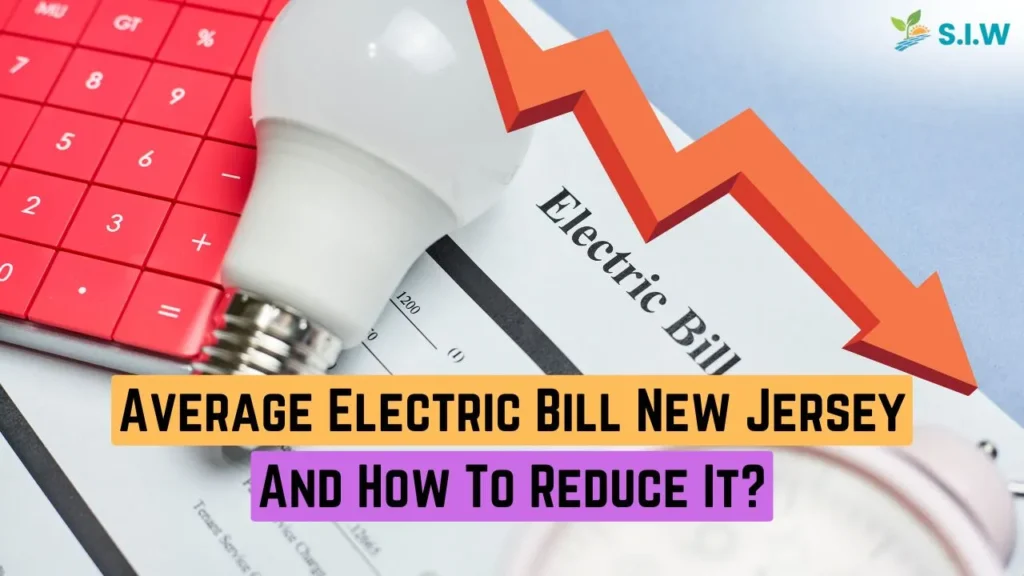Living in New Jersey comes with its share of expenses, and high electricity bills can be one of them. As energy prices continue to rise, many homeowners are seeking sustainable ways to cut costs. This article dives into the average electric bill in New Jersey, examines key factors driving costs, and offers actionable ways—such as solar energy—to reduce monthly expenses while benefiting from cleaner, renewable sources.
1. What Is the Average Electric Bill in New Jersey?
New Jersey residents pay higher-than-average utility costs compared to other states in the U.S. According to the U.S. Energy Information Administration (EIA), the average monthly electric bill in New Jersey is approximately $123, though individual bills can vary based on factors like home size, energy efficiency, and usage patterns.
Several factors contribute to these costs:
- Climate: Hot summers drive up air conditioning usage, while cold winters increase heating needs.
- Electricity Rates: New Jersey’s electricity rates are about 17.5 cents per kWh, which is above the national average.
- Home Size and Appliances: Larger homes with older, inefficient appliances consume more energy.
With rising energy prices, finding ways to reduce these costs has become essential for New Jersey residents.
2. How Solar Power Can Help Reduce Electric Bills
Switching to solar energy is one of the most effective ways to cut electricity costs in New Jersey. As the state actively promotes green energy initiatives, homeowners can benefit from incentives that make solar installations affordable and impactful.
Why Solar Energy Works in New Jersey
- Abundant Sunlight: New Jersey gets an average of 206 sunny days per year, offering ample opportunity to generate solar power.
- State Incentives and Rebates: Programs like the New Jersey Clean Energy Program and Federal Investment Tax Credit (ITC) can cover a significant portion of installation costs.
- Net Metering: This policy allows you to sell excess energy back to the grid, further offsetting your energy expenses.
By installing a solar panel system, homeowners can significantly lower their dependence on traditional electricity providers and stabilize their long-term energy costs.
3. Additional Ways to Reduce Your Electric Bill
While solar energy offers substantial savings, there are several other ways to reduce your energy consumption:
1. Energy-Efficient Appliances
Replacing older appliances with ENERGY STAR-certified models can reduce electricity use by up to 30%. Smart thermostats, LED lighting, and high-efficiency HVAC systems also contribute to lower energy consumption.
2. Insulate Your Home Properly
Poor insulation causes energy loss, especially during extreme weather. Ensure your home is well-insulated, especially in the attic and around windows and doors, to prevent heat transfer.
3. Use Time-of-Use Rates
Many utility companies in New Jersey offer time-of-use (TOU) plans, where you pay lower rates during off-peak hours. Shifting some of your energy consumption to these hours can result in significant savings.
4. Conduct an Energy Audit
An energy audit can help you identify inefficiencies in your home’s energy use. Many local utility companies provide these audits for free or at a low cost.
4. How Much Can You Save with Solar Panels in New Jersey?
The cost savings from solar energy are significant. The average solar installation cost in New Jersey ranges between $12,000 and $20,000 after state and federal incentives. While the upfront investment might seem high, homeowners typically recover their costs within 5 to 7 years through energy savings and incentives.
After the break-even point, most homeowners save between $1,200 and $2,000 annually on electricity bills. Considering that solar panels have a lifespan of 25 years or more, the total lifetime savings can exceed $50,000.
5. New Jersey Solar Incentives and Programs
New Jersey offers several programs to encourage homeowners to adopt solar energy:
- Federal Investment Tax Credit (ITC): Homeowners can deduct 30% of the installation cost from their federal taxes.
- Solar Renewable Energy Certificates (SRECs): Earn credits for the energy your system produces and sell them to utility companies.
- Net Metering: Allows you to send excess solar energy back to the grid for credit on your utility bill.
6. How to Get Started with Solar Energy in New Jersey
If you’re ready to switch to solar, here’s a step-by-step process to help you get started:
- Research Local Solar Installers: Look for reputable solar companies in New Jersey with experience in local regulations and incentives.
- Schedule a Consultation: Many installers offer free consultations to assess your home’s suitability for solar energy.
- Review Financing Options: Explore solar loans, leases, or power purchase agreements (PPAs) to find the best fit for your budget.
- Apply for Incentives: Work with your installer to apply for state and federal incentives to maximize your savings.
Conclusion
The average electric bill in New Jersey can put a strain on household budgets, but there are effective ways to reduce these costs. Solar energy stands out as the most sustainable and impactful solution, offering long-term savings and environmental benefits. Combined with other energy-saving strategies like efficient appliances, better insulation, and time-of-use plans, homeowners can significantly lower their monthly expenses.
By taking advantage of New Jersey’s solar incentives and programs, you not only save money but also contribute to a cleaner, greener future. Now is the perfect time to explore solar energy and start your journey towards energy independence.








